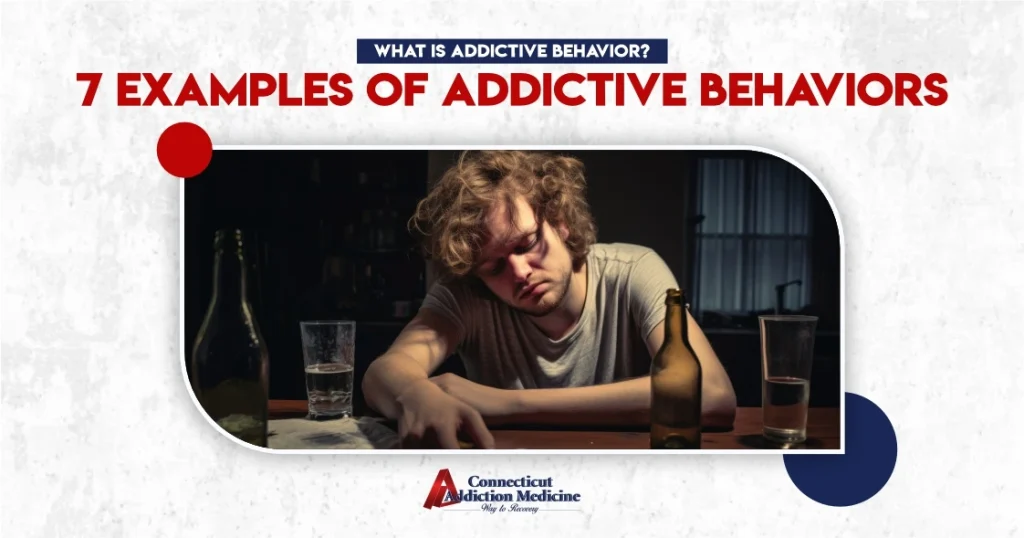Many people are affected by addictive behavior without even realizing it. They might get trapped in routines that feel good temporarily but lead to negative consequences over time.
Addictive behavior can affect the ability to enjoy life. It can involve substances or behaviors like gambling, eating, or even using social media. Understanding it is the first step to recovery.
At CT Addiction Medicine, we believe that education is the first step toward healing. Many people live with addiction without realizing it. They might think they just have a bad habit. But these habits can take over and cause serious problems in their lives.
What Is Addictive Behavior?
Addictive behavior is when someone keeps doing something even when it hurts them. Many
people don’t notice their addictive patterns right away. These patterns often develop slowly.
Here’s how they usually start:
- The person feels stress, sadness, or boredom.
- They engage in the behavior to feel better.
- The behavior brings relief or pleasure.
- They repeat the behavior regularly.
- Over time, they feel they can’t live without it.
The Role of Addictive Thinking
Thought patterns play a major role in addiction. People trapped in addictive thinking patterns believe they “need” the behavior to survive. Thoughts like:
- “I’ll stop tomorrow.”
- “I deserve this.”
- “It’s not that bad.”
These thoughts keep the person in
denial. They ignore the damage their habits are causing.
Different Types of Addictive Behaviors
| Behavior
Type |
Short-Term
Effect |
Long-Term
Harm |
| Drug Use | Pleasure,
pain relief |
Health
issues, legal problems |
| Gambling | Excitement,
thrill |
Financial
loss, depression |
| Overeating | Comfort,
satisfaction |
Obesity,
diabetes |
| Social
Media Use |
Validation,
distraction |
Anxiety,
isolation |
| Shopping
Addiction |
Excitement,
sense of control |
Debt,
clutter |
| Gaming | Escape,
achievement feeling |
Poor
sleep, isolation |
| Pornography
Addiction |
Pleasure,
distraction |
Guilt,
relationship issues |
Signs of Addictive Behavior
- You feel shame or guilt afterward.
- You lie about it or hide it from others.
- You use it to cope with stress or pain.
- You spend more and more time on the behavior.
- You neglect responsibilities because of it.
- You feel angry or anxious when you can’t do it.
Steps to control your addiction
- Be Honest with Yourself
- Recognize Your Triggers
- Replace, Don’t Just Remove
- Start with small steps
Drug Addiction and Behavior Patterns
While this blog focuses on everyday behaviors, drug addiction is a serious form of addictive behavior. Many of the same rules apply.
Behavior patterns of a drug addict include:
- Mood swings
- Risky decisions
- Hiding substance use
- Financial trouble
Understanding these signs can help loved ones recognize the problem early.
How to Get Help
Many people try to quit addictive behaviors alone. But addiction is complex. Treatment centers like CT Addiction Medicine offer support that works.
Therapies may include:
- Cognitive Behavioral Therapy (CBT)
- Group Therapy
- Medication when needed
Support groups also help. You’ll meet others who understand what you’re going through.
Conclusion
People don’t become addicted overnight. It often begins as a simple habit. Eventually, they do it every day, then every meal. Now it’s an addiction.
These behavior patterns of a drug addict, for example, include avoiding family, losing interest in hobbies, or needing more drugs to feel the same effect. Whether it’s food, phones, or drugs, the story is similar. The addiction grows when we ignore it. Recognize your triggers
Start by understanding the behavior. Then seek help. You are not weak for needing support. You are strong for choosing change.
Addictive behavior isn’t always about substances. It can be about thoughts,
patterns, and habits. And every habit can be changed. Reach out today for professional help.
FAQs
Q.What is the difference between a habit and an addiction?
A habit is something you do often. An addiction is something you can’t stop doing
even when it causes harm.
Q.Do all addictions need medical treatment?
Not always, but some do
Q.Are all habits addictions?
No, only when it controls your life or causes harm.
Q.Can behavioral addictions be treated?
Yes, they can be treated like any other addiction.

